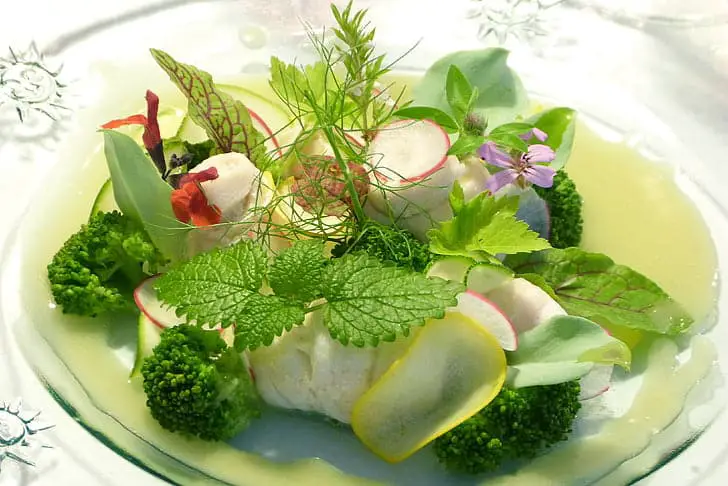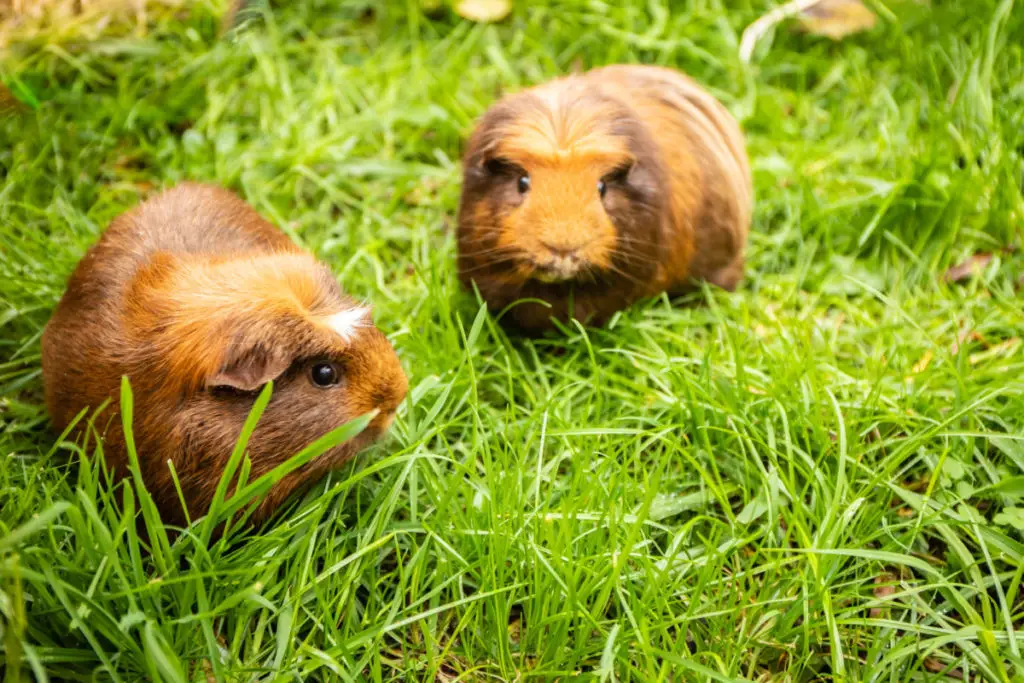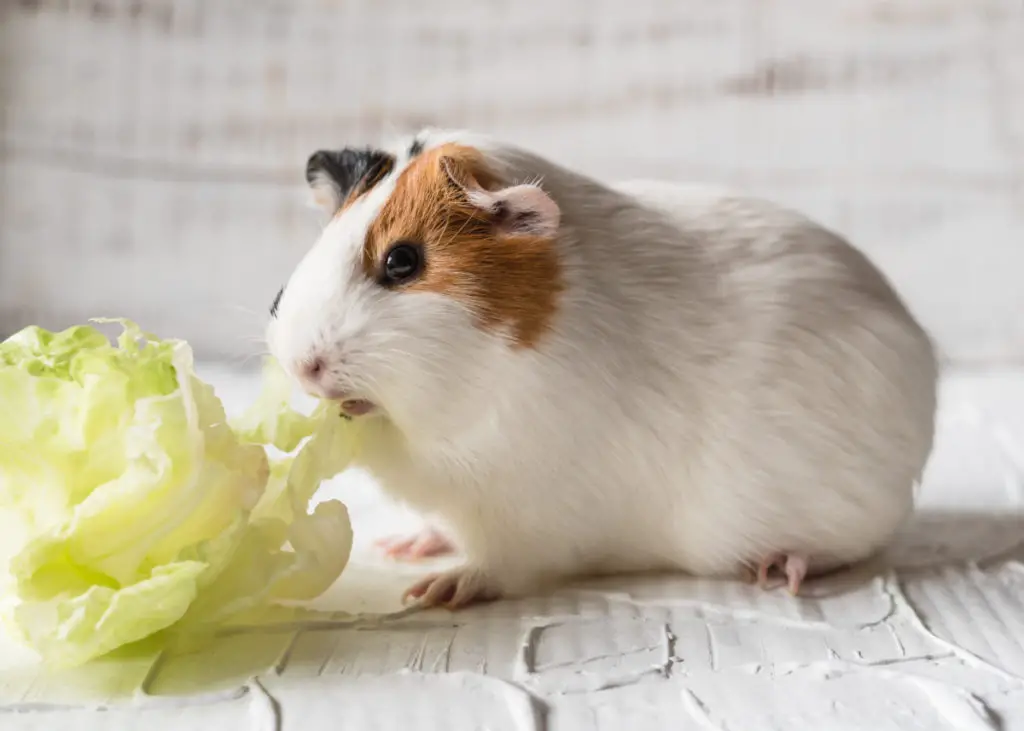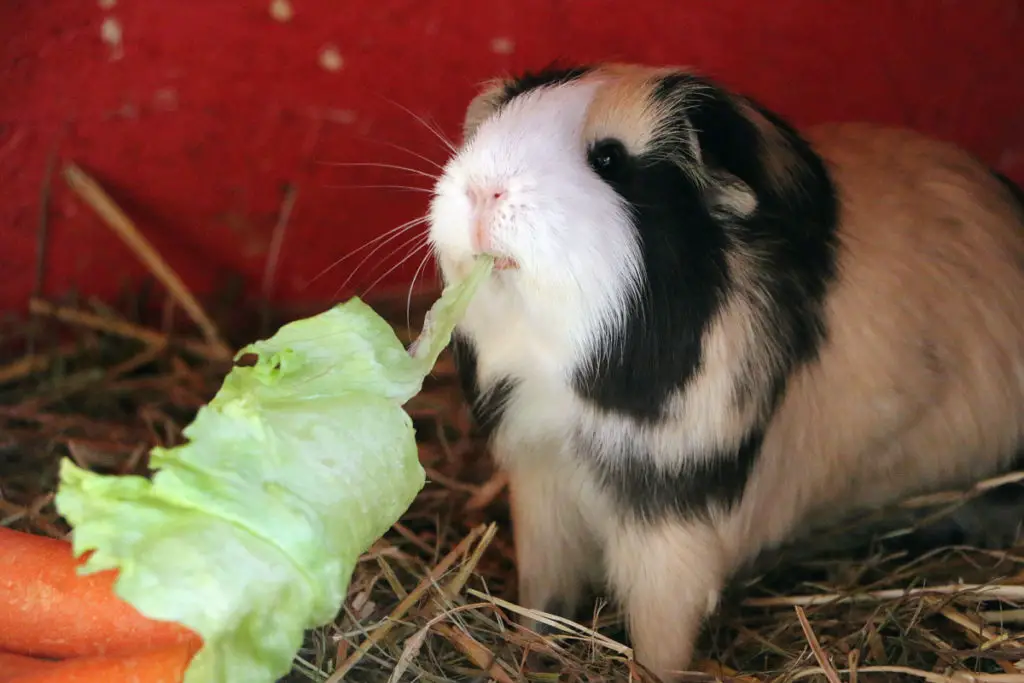Can Guinea Pigs Eat Herbs? 9 Best Herbs
Can guinea pigs eat herbs? Of course! It’s because guinea pigs are herbivores. Their diet mainly consists of leaves and hay. In some cases, fruits and vegetables are a perfect addition to their food intake.
Herbs are leaves collected from specific plants, and these are commonly used for seasoning and adding flavor to a wide variety of dishes. Moreover, these easy-to-find spices are great for your cavies, too!

This article will expound on the benefits and drawbacks that different herbs offer for your piggies. Your pets would appreciate this touch in their diet in no time!
9 Herbs For Guinea Pigs
Can guinea pigs eat herbs? Like people, you should treat guinea pigs as individuals that have varying tastes.

Some of them may like herbs, and others would not. Herbs are excellent and safe, but you should monitor and limit giving this to them. Here is a list of great herbs that you can feed to your guinea pigs:
1. Dill
Amazingly, dill contains a sufficient amount of calcium that helps your pet build and maintain strong bones. The heart, muscles, and nerves will be able to function well.
Although this herb is safe for guinea pigs, sometimes they do not like the taste.
Moreover, do not feed dill regularly as it may cause complications due to calcium and oxalic acid responsible for the formation of bladder stones.
2. Thyme
Thyme does have a great flavor as well as is packed with antioxidants, vitamins, and minerals. It is an outstanding source of Vitamin C that your pet needs to maintain a healthy body.
But, limit giving this regularly even though guinea pigs like the taste of thyme.
3. Parsley
One of the best herbs that you can give Guinea pigs is parsley. Aside from its delicious taste, it also has Vitamin C.
But since this contains a high amount of calcium and oxalic acid, provide this only occasionally as it may cause diseases.
4. Cilantro

Cilantro has a strong smell. Thus, guinea pigs may not like its taste.
However, this is safe to feed to your pet. Just make sure to monitor the diet of your pets and do not give it daily. Consider giving Guinea pigs cilantro as a treat only.
5. Mint
Mint contains nutrients that your guinea pigs need. Even though it contains essential vitamins and minerals, you can only give your pet small leaves one to two times per week.
6. Basil
Basil is safe and edible for your guinea pigs. However, it does not have enough vitamin C. It also contains a high amount of calcium.
Thus, giving this herb to your guinea pig every day is not allowed. You can only provide basil to your guinea pig as an occasional treat.
7. Fennel
Guinea pigs love the stems and leaves of the fennel. Consider portioning it out with care as fennels happen to have a high level of calcium. You can feed fennels to your guinea pigs at most three times a week.
8. Arugula
Guinea pigs are crazy about arugula or also known as rocket salad because of its peppery flavor. Although arugula is safe and edible for your pet, it contains a high level of calcium. In addition to this, it only has a small amount of vitamin C. Provide only small portions of arugula to your guinea pigs occasionally.
9. Endive
Endive is safe for the consumption of your guinea pigs. Your pets will surely enjoy the taste of your guinea pigs. It has a small amount of calcium and tiny amounts of vitamin C. You can offer endive to your guinea pigs at most twice a week.
Health Benefits Of Herbs
If you are wondering whether or not guinea pigs can eat herbs, the answer is yes. It has a lot of benefits too.
Below are some of the health benefits your guinea pig can get from eating herbs.
-
Variety
Guinea pigs get tired of eating the same food every day, which might lead to boredom and depression. You can try something different every single time because herbs have a wide variety.
-
Good source of vitamin C
Guinea pigs cannot produce and store their own vitamin C. Several herbs have a significant amount of this vitamin.
-
Overall good for guinea pigs
Herbs contain nutrients that contribute to the growth of guinea pigs. These include vitamins A, C, and K.
Herbs also have minerals such as calcium, iron, manganese, magnesium, phosphorus, and potassium.
How To Prepare Herbs For Guinea Pigs?
Make sure to give only fresh herbs to your pet. Yes, some may use powdered or dried herbs to add a little flavor to the food but note that this is not healthy. Your pet may eat food that is exposed to preservatives, thus making it harmful.

If you love gardening and plants, consider growing your own. You will save money, but you can have a peaceful mind as it doesn’t contain any chemicals that are dangerous to guinea pigs.
Buy only organic herbs. Even though this is a little expensive, it will make your pet healthier, so why not feed them with organic ones? Before giving herbs to your pet, ensure that you wash them properly because there is a possibility that it contains bacteria and fungi.
If you do not want your guinea pigs to catch any diseases, never feed them with old and damaged herbs.
Throw the food that was not consumed within 24 hours as bacteria may grow, affecting your guinea pig.
How To Introduce Herbs To Guinea Pigs?
You can feed herbs to your guinea pigs once or twice a week but take note that it is essential to provide your guinea pigs with a gradual introduction to herbs.
Start by giving only small portions at a time.
For 12 hours, if there are no signs of diarrhea or discomfort, then you can start by giving larger servings of herbs to your adult guinea pigs. Consider the risks as each herb has its required serving and frequency.
However, if these discomforts or allergies occur, then consider keeping the specific herb off the menu.
Herbs That Are Bad For Guinea Pigs
Take note that not all herbs are great for your cavies. Some could affect their digestive system and their entire well-being as well.
Here are some of the herbs that you shouldn’t give to your piggies:
1. Chives
You should not include any kinds of chives in your pets’ diet. These contain disulfides that would potentially damage your cavies’ red blood cells.
2. Rosemary
This herb contains high concentrations of calcium. Adding it to their diet could affect their digestive system. Moreover, there is only a little information about the benefits of rosemary
Thus, avoid incorporating this herb into their food intake.
3. Oregano
Like the former, oregano has high amounts of calcium. It is best to avoid giving this to your piggies as it could affect their bowel movement.
Are Dried Or Powdered Herbs Safe For Guinea Pigs?
Can guinea pigs eat herbs? Yes. However, dried or powdered ones contain preservatives and have low water content.
These factors are harmful to your cavies. Thus, it’s better to go with fresh, organic herbs instead.
How Many Herbs Should I Give To My Guinea Pigs?

Consider providing herbs as an occasional treat for your cavies. Feed them only small amounts to prevent any excessive intake that could lead to their demise.
The best method is to chop them into small bites and then offer them 1 to 2 teaspoons of herbs per pound of their body weight. Avoid offering them the same herbs every day it is suggested to give a bit of all the safe herbs alternately.
Final Words
This article has discussed whether or not can guinea pigs eat herbs. Guinea pigs are herbivores and these plants can be a good addition to their diet.
Take note of what’s best and what’s not. Always keep in mind to feed your cavies in adequate amounts and prioritize their health as much as possible.
Good luck and keep safe.
